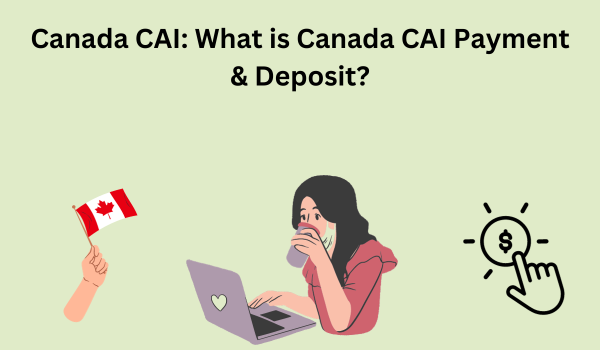The government of Canada is giving money back to families who can get it because pollution is getting worse. We are going to help you figure out if you can get this money and how to get it if you can.
What is Canada CAI Payment & Deposit
In Canada, some provinces have a system to make people pay for polluting the environment. The government gives money to people in these provinces to help them with the extra cost. They used to give this money once a year, but now they give it every three months (every quarter).
This payment is sometimes called the Carbon Tax Rebate, and it is given by the Canadian government to help people deal with the extra cost of pollution pricing.
CAI Payments
Not everyone can get this extra money; only certain people in specific provinces can. Here is the complete list:
| For People | Ontario | Saskatchewan | New Brunswick | Manitoba | Alberta | Nova Scotia | Newfoundland and Labrador | Prince Edward Island |
| Single | $488 | $680 | $92 | $528 | $772 | $124 | $164 | $120 |
| Spouse | $244 | $340 | $46 | $264 | $386 | $62 | $82 | $60 |
| Under 19/Child | $122 | $170 | $23 | $132 | $193 | $31 | $41 | $30 |
| First Child in a family of a single parent | $244 | $340 | $46 | $264 | $386 | $62 | $82 | $60 |
If you live in a rural area in those provinces, you might also get 10% more. People in Prince Edward Island will also get an extra 10% payment:
When do you get the Canada CAI Payment
If you can get the extra money, they will give it to you on the 15th of April, July, October, and January. However, if the 15th is on a weekend or a holiday, they will give it to you on the last workday before the 15th.
They will put the CAIP money in the same way you get your tax refund. So, if you choose to get your tax refund by direct deposit, they will put the extra money in your bank account. You will see it as “Climate Action Incentive” or something similar.
However, if you owe taxes to the Canadian Revenue Agency, they will use the extra money to pay what you owe.
Remember, if you do not get the extra money on the 15th as they said, wait for at least ten days before you tell them about it.
Important Links
Canada CAI Payment Eligibility Conditions
Before we talk about how to get the extra money, let us make sure you can actually get it.
To get the carbon tax rebate, you need to live in one of the Canadian provinces we mentioned on the day they gave out the money. You also have to be at least 19 years old in the month they give it to you.
However, if you are not 19 yet, you can still get the money if you meet one of these conditions:
- You are married, now or in the past.
- You are a parent and live with your child.
Usually, you have to be 19 to get this extra money. However, if you turn 19 before January 2024 and you have filed your income tax return for 2022, the tax agency will figure it out, and they will give you your first payment on your 19th birthday.
How to Get CAI Payment & Deposit
To get the extra money every three months, you and your husband or wife (if you have one) need to fill out an income tax form. They will send the money to either you or your spouse, but the amount will be the same either way. Moreover, to keep getting this extra money, you have to keep doing your taxes every year.
You do not have to fill out a special form to get the money. The tax agency will put the money in your account when you do your income tax.
When to Talk to the CRA
If you can get the extra money and any of these things change, you should get in touch with the CRA:
- If the number of kids you are responsible for changes.
- If someone who was getting the money passes away. They will tell you what happens if the person who passed away was married or single, divorced, widowed, or separated.
- If you get married or change your relationship status.
- If you move or change where you live.

I am a passionate technology and business enthusiast, constantly exploring the intersection where innovation meets entrepreneurship. With a keen eye for emerging trends and a deep understanding of market dynamics, I provide insightful analysis and commentary on the latest advancements shaping the tech industry.
